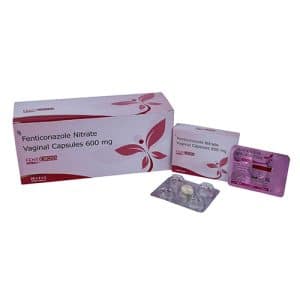Robeprazole Sodium & Domperidone Capsules – These capsules incorporate Rabeprazole Sodium Enteric Coated and Domperidone sustained release into their formulation for therapeutic significance in treating gastrointestinal disorders suffering from acid and delayed gastric emptying, in which patients may show symptoms as nausea, vomiting, gastroesophageal reflux disease (GERD), gastric ulcers, and functional dyspepsia. These formulations constitute an enteric-Rabeprazole Sodium-the strongest possible proton pump inhibitor devoid of side effects-and Domperidone, which acts as prokinetics.
Composition
- Rabeprazole Sodium: 20 mg (enteric-coated pellets)
- Domperidone: 30 mg (sustained-release pellets)
Enteric coating of rabeprazole-from the acid of the stomach-increases absorption of rabeprazole because it is released in the small intestine. Thus, the prolonged release of domperidone enhances its effect concerning gastric motility and symptoms of nausea and bloating.
How It Works
Rabeprazole Sodium: Suppresses the proton pump within the lining of the stomach, leading to reductions of gastric acid secretions and, thus, creates a less acidic environment which can promote healing of ulcers and really helps in relieving symptoms resulting from acid reflux.
Domperidone: Acts against the dopamine receptor in the gut thereby accelerating gastric emptying and enhancing the motility of the stomach. Such action reduces the sensation of fullness or nausea and early satiety with bloating associated with delayed gastric emptying.
Dosage and method of administration
- Dosage: As directed by your medical practitioner.
- Administration: Swallow the whole capsule with water. Do not chew, crush, or open the capsule.
- Timing: In the ideal case, should be taken in the morning, at least 30 minutes before a meal.
- Duration: Follow as per schedule the prescribed duration of therapy. Do not stop taking the medicine suddenly without consulting with the health care provider.
Benefits of Enteric Coated Rabeprazole Sodium & Domperidone Sustained Release Capsules
1. Dual Symptom Relief
Rabeprazole Sodium displays its capacity as a potent anti-secretory agent by abolishing the generation of acid in the stomach, while domperidone works as an intimate prokinetic in accelerating gastric emptying and treating symptoms such as nausea, bloating, and fullness. They work better in unison against numerous conditions, including gastroesophageal reflux disease (GERD), functional dyspepsia, and gastric ulceration.
2. Enteric-Coated Protection
Rabeprazole has “enteric” coating, which helps it pass through the stomach and get absorbed in the small intestines so that stomach acid does not degrade the drug. This guarantees maximal effectiveness with minimum irritation.
3. Sustained Release Mechanism
Domperidone gradually releases over time, maintaining total therapeutic concentrations in the body, thus providing a prolonged relief action and reducing the frequency of administration.
4. Enhanced Digestive Health
By controlling acid and increasing motility, this important medicine acts on general digestion, reducing the degree of inflammation in the gastrointestinal lining and promoting healing of the ulcers.
5. Reduced Side Effects
Since Rabeprazole mainly interacts preferentially in the stomach, while Domperidone largely remains restricted to the gastro-intestinal tract, all side effects of systemic nature are minimal in comparison with other therapies.
Side Effects
Common side effects may include:
- Headache
- Dry Mouth
- Diarrhea
- Abdominal Discomfort
- Dizziness
Serious side effects are often rare, but may include:
- Cardiac Arrhythmias
- Severe Allergic Reactions
- Liver Enzyme Abnormalities
Seek immediate medical assistance if any side effects become serious.
Precautions
- Hypersensitivity: Contraindicated in patients with a known hypersensitivity of Rabeprazole, Domperidone, or to any of the formulation components.
- Renal and Hepatic Impairment: Use with caution in such patients, as adjustment of dosage may be required.
- Pregnancy and Lactation: for use during pregrant or while nursing, seek advice from a healthcare professional first.
- Drug interactions: Notify your provider of all concurrent medications as interactions with others may develop.








